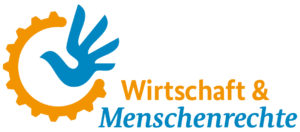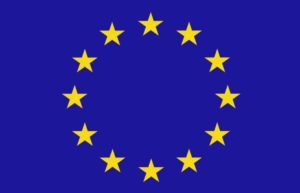XertifiX chairwoman receives Federal Cross of Merit
 We are pleased that our Chairwoman Ingrid Sehrbrock received the Federal Cross of Merit from Prime Minister Dietmar Woidke in the name of Federal President Frank-Walter Steinmeier last Thursday. The Federal President is thus honoring Sehrbrock’s years of commitment to justice through his work with the CDU, Care and XertifiX. In her voluntary work, Sehrbrock has campaigned, among other things, for equal rights for women, better working conditions for textile workers and quarry workers, as well as for school and social projects.
We are pleased that our Chairwoman Ingrid Sehrbrock received the Federal Cross of Merit from Prime Minister Dietmar Woidke in the name of Federal President Frank-Walter Steinmeier last Thursday. The Federal President is thus honoring Sehrbrock’s years of commitment to justice through his work with the CDU, Care and XertifiX. In her voluntary work, Sehrbrock has campaigned, among other things, for equal rights for women, better working conditions for textile workers and quarry workers, as well as for school and social projects.
We warmly congratulate Ingrid Sehrbrock on this well-deserved award!

 The purpose of the new study was to analyze how well the NAP
The purpose of the new study was to analyze how well the NAP  Sections of the European economy are fighting openly or behind the doors against the planned European supply chain law. The organizations “Corporate Europe Observatory” and the “European Coalition for Corporate Justice” have written a study that makes transparent how the economy has tried to influence politics in their favor in the last few months in order to achieve a possible binding European regulation dilute.
Sections of the European economy are fighting openly or behind the doors against the planned European supply chain law. The organizations “Corporate Europe Observatory” and the “European Coalition for Corporate Justice” have written a study that makes transparent how the economy has tried to influence politics in their favor in the last few months in order to achieve a possible binding European regulation dilute. After months of negotiations, the federal government has agreed on a supply chain law. From XertifiX’s point of view, this is basically a step in the right direction. However, the initial limit of 3000 employees, for whom the law will apply from 2023, is a disappointing limitation. The initiative supply chain law, of which XertifiX is a member, evaluates the law accordingly.
After months of negotiations, the federal government has agreed on a supply chain law. From XertifiX’s point of view, this is basically a step in the right direction. However, the initial limit of 3000 employees, for whom the law will apply from 2023, is a disappointing limitation. The initiative supply chain law, of which XertifiX is a member, evaluates the law accordingly. In the dispute (between the Ministry of Labor and Development on the one hand and the Ministry of Economic Affairs on the other), Ministers Heil (SPD) and Müller (CSU) presented a compromise proposal for a supply chain law. As can be seen in today’s Handelsblatt, the compromise offer only provides for fines and administrative penalties, such as the exclusion of a company from public contracts. This actually fulfills one of Altmaier’s central requirements. This compromise proposal should now go to the coalition committee.
In the dispute (between the Ministry of Labor and Development on the one hand and the Ministry of Economic Affairs on the other), Ministers Heil (SPD) and Müller (CSU) presented a compromise proposal for a supply chain law. As can be seen in today’s Handelsblatt, the compromise offer only provides for fines and administrative penalties, such as the exclusion of a company from public contracts. This actually fulfills one of Altmaier’s central requirements. This compromise proposal should now go to the coalition committee. “The Legal Affairs Committee of the European Parliament yesterday voted for a European supply chain law. … The committee has thus voted in favor of a proposal on what a European supply chain law should look like – namely effectively. Companies should be obliged to avoid human rights violations and environmental destruction along their entire value chain. If companies fail to comply, they should be able to be sanctioned and made liable.
“The Legal Affairs Committee of the European Parliament yesterday voted for a European supply chain law. … The committee has thus voted in favor of a proposal on what a European supply chain law should look like – namely effectively. Companies should be obliged to avoid human rights violations and environmental destruction along their entire value chain. If companies fail to comply, they should be able to be sanctioned and made liable.



